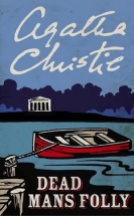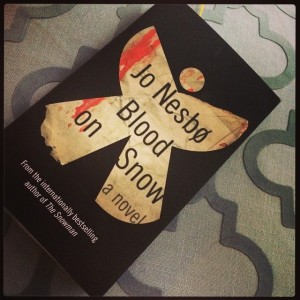I never used to get that excited about Easter. Yeah, there was chocolate involved but it also meant dressing up, lots of church and a dinner that involved a ham which has never been my favourite. But for the last several years, it’s meant an extra long weekend to visit my in-laws at the lake which has pushed Easter onto my list of favourite holidays.
As those of you that have been followers for a while know, this means it’s time to talk about the books that I’m bringing! Sometimes the weather is sunshiney and awesome, other times it’s cold and wet but really it doesn’t matter what the weather is doing because I can read inside or outside.
When I first started thinking about what to bring, I thought this might be a good time for some of the non-fiction I’ve been meaning to get to: Missoula, Bitch, The War That Ended Peace. But with the kind of week it’s been, I’m not sure my heart can take anymore rage.
So fiction it is.
I’m bringing:
The Hypnotist by Lars Keplar. This seriously twisted husband/wife duo wrote The Sandman , a book that I couldn’t read alone at my bus stop. The Sandman was actually the third in the series, The Hypnotist is the first. I think I will have to read this one early in the weekend because I suspect my father-in-law might be eyeing it down and it will stay behind for him.
A Hundred Summers by Beatriz Williams. A long weekend always seems like a good time to read about beach vacations. Memorial Day weekend in 1938 and a socialite beachfront community? Sign me up. I had been looking for this book for a long time and it always seemed to be sold out. Found it on my birthday for $5 – a sign.
Dead Man’s Folly by Agatha Christie. Surely you all know my rule by now: a long weekend must include Agatha Christie. I recently watched the new production of And Then There Were None (recommend) and it whetted my appetite for another good Agatha Christie caper.
Servant’s Hall: A Real Life Upstairs, Downstairs Romance by Margaret Powell. OK so I guess I’m breaking my no non-fiction resolution a little bit. But since this is a Downton-inspired read, a follow up to Below Stairs, I don’t think there’s too much risk of giving myself a rage stroke from this one.
The Last Days of Magic by Mark Tompkins. I feel like maybe my life needs some magic right now so what’s better than a book of magic and mysticism, filled with Celts, fairies, mad kings, Druids and a goddess? Probably nothing. I hope that there is some sunshine to be had for this one – I suspect reading would be greatly enhanced sitting in a bright spot in the garden.
Be Frank With Me by Julia Clairborne Johnson. When I bought this, the woman at the register got really excited. She said it was charming and full of heart and said she thought I would love it. Alright then!
The Illegal by Lawrence Hill. I’ve spent the week listening to the panellists on Canada Reads talking about how great this book is, how beautifully written, what wonderful, inspiring characters it has and how readable it actually is. So now I want to find out how right they are.
Where should I start? What are you reading this long weekend?
Happy Easter!
















